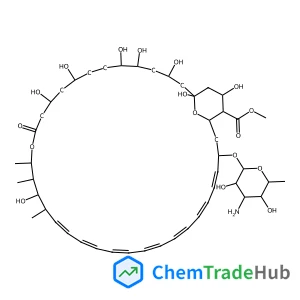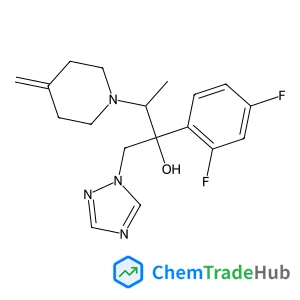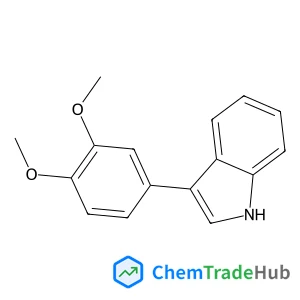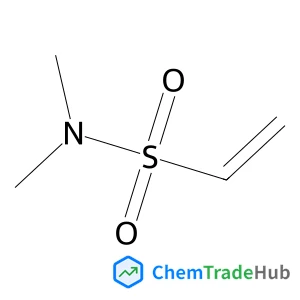Ameliorating the effect and mechanism of chitosan oligosaccharide on nonalcoholic fatty liver disease in mice
文献信息
Yan Bai, Qishi Che, Hua Cao, Jiao Guo, Zhengquan Su
Previous studies have found that chitosan oligosaccharide (COST) can alleviate the clinical symptoms in non-alcoholic fatty liver disease (NAFLD) patients. We intend to intervene with different concentrations of COST in mice with NAFLD induced by a high fat diet. The basic effect of COST on NAFLD model mice was observed using physiological and biochemical indexes. 16S rRNA sequencing technology was used to analyze the gut microbiota and further analyze the content of short-chain fatty acids (SCFAs). Western blot and RT-PCR were used to detect the effects of COST on the PI3K/AKT/mTOR signaling pathway in the livers of NAFLD mice. It was found that the COST-high-dose group could reduce the weight of NAFLD mice, improve dyslipidemia, and alleviate liver lesions, and COST has a therapeutic effect on NAFLD mice. 16S rRNA sequencing analysis showed that COST could increase the diversity of the gut microbiota in NAFLD mice. The downregulation of SCFAs in NAFLD mice was reversed. WB and RT-PCR results showed that the PI3K/AKT/mTOR signaling pathway was involved in the development of NAFLD mice. COST improved liver lipid metabolism in NAFLD mice by inhibiting liver DNL. COST could increase the expression of thermogenic protein and UCP1 and PGC-1α genes; the PI3K/AKT/mTOR signaling pathway is inhibited at the protein and gene levels. This study revealed that COST regulates the expression of related inflammatory factors caused by lipid toxicity through the gut microbiota and SCFAs, and improves the liver lipid metabolism of HFD-induced NAFLD mice, laying a foundation for the development of effective and low toxicity drugs for the treatment of NAFLD.
相关文献
IF 6.367
Building microsphere–nanosheet structures in N-doped carbon to improve its performance in the oxygen reduction reaction and vanadium redox flow batteriesIF 6.367
Front coverIF 6.222
Three-terminal III–V/Si tandem solar cells enabled by a transparent conductive adhesiveIF 6.367
An elemental S/P photocatalyst for hydrogen evolution from water under visible to near-infrared light irradiationIF 6.222
Insights into the mechanism of photosynthetic H2 evolution catalyzed by a heptacoordinate cobalt complexIF 6.367
Novel aqueous amine looping approach for the direct capture, conversion and storage of CO2 to produce magnesium carbonateIF 6.367
Strong circularly polarized luminescence of an octahedral chromium(iii) complexIF 6.222
Small size yet big action: a simple sulfate anion templated a discrete 78-nuclearity silver sulfur nanocluster with a multishell structureIF 6.222
Milk exosomes with enhanced mucus penetrability for oral delivery of siRNAIF 6.843
来源期刊
Food & Function
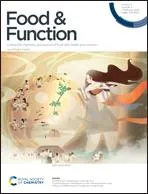
Food & Function provides a unique venue for physicists, chemists, biochemists, nutritionists and other food scientists to publish novel, cutting-edge, original research focussing on food, its nutrients and their relation to human health and nutrition. We welcome research describing the: Physical properties and structure of food and how this relates to sensory perception and human health Biochemical and physiological actions of food components Interactions between foods, gut microbiota and human physiology Nutritional and biological evaluation of food Clinical and population studies using food or food components Development of biomarkers of food intake and effects on human health We also welcome systematic reviews and meta-analyses of existing studies in the literature, provided these are objective and scientifically valid Food in this context is defined as materials of plant, animal or mineral origin, which are consumed orally (by humans) for pleasure and to sustain growth and vital processes. Examples of research topics that are of interest to be published in Food & Function are: Chemistry and physics of food components and digestion processes Relationship between the physical properties/structure of food and nutrition and human health - for example, impact of food matrix or processing on nutrient release and uptake Molecular properties and physiological effects of food components (nutrients, fibres, essential micronutrients, phytochemicals, bioactives, food substitutes, novel ingredients, allergens, flavours and fragrances) Nutritional and health effects of food including bioavailability and metabolism assessment of food components (nutrients, micronutrients and other microconstituents) Efficacy and mechanisms of food constituents in the body - including biomarkers of intakes, exposure and effects Impacts of foods/food components on gut microorganisms and human physiology - For example impact of fermented foods Role of nutrition and diet in human disease prevention and development Cellular and molecular effects/mechanisms of food/food components image block The following types of research are not within the scope of Food & Function: Research relating to traditional herbal medicines, medicinal plants or active compounds extracted from such plants (materials that are primarily consumed as medicine, i.e. the intended purpose is primarily to treat, cure or prevent a non-deficiency disease) or relating to foods not recognised as human diet contributors Animal nutrition research that is not primarily designed as a model to benefit human nutrition (for example, studies of growth/accretion, heat stress, weaning, ruminant digestion, meat quality, etc.) Treatments administered by non-oral routes such as injection (subcutaneous, intramuscular, intraperitoneal, etc.), dermal/transdermal, rectal, inhalation, nasal, etc. Exceptions are when such routes of administration are used for mechanistic/control purposes in the experimental design Pharmacological/pharmaceutical approaches: Encapsulation, emulsification and/or pure controlled release of compounds or bioactives that do not come directly from edible foods, such as dietary supplements - these are better suited to a pharmaceutical journal In vitro or in vivo studies with poorly defined (insufficiently characterised) extracts and studies without appropriate controls will not be considered Cells studies not considering the metabolism of food components ingested – for example, irrelevant exposure of cells to compounds not present in the body after absorption Manuscripts with only a fully theoretical/bioinformatic approach and without appropriate support from analytical evidence will not be considered for publication Studies focussing solely on food engineering, preservation and sustainable technologies – these can be published in our companion journal Sustainable Food Technology Pure food analysis - these can be published in Analytical Methods
推荐供应商
 吕格F.
吕格F. MSR电子有限公司
MSR电子有限公司 DECKMA HAMBURG GmbH
DECKMA HAMBURG GmbH 马希宁·梅切尔
马希宁·梅切尔 南京延乔科技有限公司
南京延乔科技有限公司 河北景县鑫源橡胶化工有限公司
河北景县鑫源橡胶化工有限公司 阿尔伯特·汉特曼·埃尔泰卡有限公司
阿尔伯特·汉特曼·埃尔泰卡有限公司 DURAG GmbH
DURAG GmbH 南京定达医药科技有限公司
南京定达医药科技有限公司 浙江车头制药有限公司
浙江车头制药有限公司










